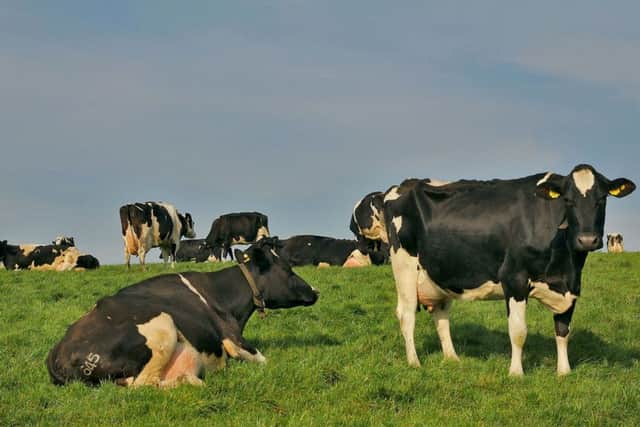Farmer sold his entire herd to replace them with RHI boilers
and live on Freeview channel 276
The situation related to Scotland, where RHI was less lucrative than in Northern Ireland because it was operating with cost controls – indicating how extremely generous the Northern Ireland scheme actually was.
Yet despite the obvious warning which such a case study might have been to Stormont, the message never made its way to DETI because Ofgem did not pass it on.
Advertisement
Hide AdAdvertisement
Hide AdThe RHI Inquiry was told that in November 2014, an Ofgem member of staff sent an internal email setting out what they had observed in Scotland.


The email said that “interest in the RHI is very high among farmers and returns on the non-domestic RHI are so high [that] farmers are responding by planning RHI installations without an existing or planned heat use”.
The individual who passed on the message went on to say: “I was told by one farmer that he had sold his entire herd of cows and was turning all the cow sheds over to the RHI.
“When asked what he planned to use the sheds for, he said ‘growing things, eventually. I’m going to get someone to use one as a workshop for now’.
Advertisement
Hide AdAdvertisement
Hide Ad“It’s not clear to me what he could effectively grow in a cow shed, as these are normally [seemingly not] well lit.
“He might be able to put a mushroom operation in, but my concern was he didn’t seem at all interested in finding a use for the heat, except insofar as he needed to get the application through.”
The same individual, who had attended an event where RHI was being marketed, said that an installer had said: “I do worry when I’m asked to put in installations where the heat use is not at all clear.
“We passed a number of installations that he was working on which were crinkley tin sheds being put up – all of them with RHI installations planned. None of them had been there before.
Advertisement
Hide AdAdvertisement
Hide Ad“Presumably they were being built to fulfil some new requirement [for heat] but it was not clear what that requirement was – other than to harvest the RHI.”
The examples led to a research paper which expressed concerns about flaws in RHI – both the potential for fraud and for ‘gaming’ the system, a manipulation of the rules, sometimes to an extreme extent, to the financial advantage of the applicant and generally outside the spirit of what is a subsidy meant to improve the environment.
Ofgem chief executive accepted there had been “significant failings” on the part of Ofgem in that it did not pass on to Stormont multiple examples of how the scheme could be abused.
He said that Ofgem staff were “trying to do their jobs” but “it seems clear that somehow they didn’t think it was their function to deal with gaming of the scheme”, part of a wider hands-off approach by Ofgem which saw its role as simply administering RHI while the rules were set by the department.
Advertisement
Hide AdAdvertisement
Hide AdHe admitted that “may not sound terribly impressive” but he believed it was the truth.
He added, however, that there was a sense within Ofgem that it had warned DETI about the potential for abuse at the outset and DETI had not listened.
Documentation which Ofgem has submitted to the inquiry shows that on multiple occasions it received allegations about how the scheme was being abused.
One whistleblower said: “I have personally seen boilers installed in previously unheated warehouses with radiators covering most of the wall surfaces to keep the meter turning.”